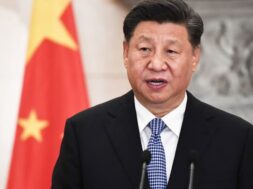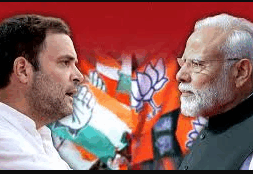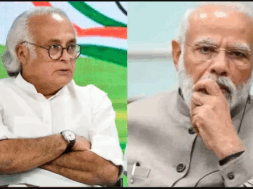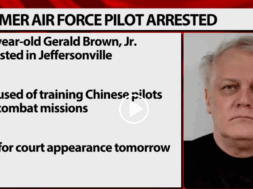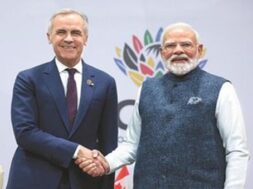
The Dragon is sick: Chinese economy faces worst slowdown since 2020
Virendra Pandit
New Delhi: The Dragon is out of the bag and it is sick.
All is not well with Beijing. Suddenly, its plans may have gone awry. Not only has the Russia-Ukraine war sparked all-around uncertainties across the planet, China’s own global standing and trustworthiness are also at a nadir, particularly after its alleged dubious role in the spread of the Covid-19 pandemic.
Its problems are piling up. Premier Li Keqiang, who has served two five-year terms, announced retirement. And Xi Jinping’s ambition to secure a third term, that could smoothen his way to become President-for-Life, has come under a cloud.
For, the Chinese economy is facing its worst downward pressure since early 2020 when it, and the world, was hit by the first wave of the Covid-19 pandemic, experts said.
According to the media reports on Saturday quoting Nomura Holdings Inc, a leading Japanese financial holding company and a principal member of the Nomura Group, the slowdown in China’s growth worsened in the first quarter of 2022 and markets are worried about a further slide in the second.
It said China’s economic activities “may notably deteriorate across the board” in March, weighed down by increasing mobility restrictions across the country because of a resurgence of Covid-19 infections, and a continued property sector slump after the Evergrande crisis.
With the pandemic’s fresh outbreaks hurting several sectors, including in-person services, construction and some manufacturing activity, “it’s getting harder for Beijing to achieve its ‘around 5.5 per cent GDP growth target for 2022,” it warned.
The financial services company cut its estimate for China’s growth from April to December 2022, citing the worsening Covid-19 situation. While Nomura’s experts revised up expectations for expansion in the first three months to 4.2 per cent, they noted that their existing 2.9 percent forecast may reflect the “real economic situation on the ground well.”
The upward revision mainly shows the strong official data for the January-February period, but it did not mean a change in Nomura’s full-year forecast, which stands at 4.3 percent. In January, the Chinese economy had a stronger-than-expected start to 2022, with consumer spending, investment and industrial output all beating forecasts.
The outlook, however, has turned increasingly grim as the Communist country battles its worst pandemic outbreak since it emerged in Wuhan in early 2020, and Russia’s February 24 invasion of Ukraine, which has thrown global financial markets and energy prices into a tailspin.
China is the world’s top energy-hungry nation. Because of the fresh developments, production activities in the country’s technology and manufacturing hub Shenzhen and automotive city Changchun have been disrupted by severe virus control measures and lockdowns, while residents in the financial centre of Shanghai were forced to stay at home as the city conducts rounds of mass testings, the reports said.
Beijing reported 5,600 fresh Covid-19 cases on Saturday, the most daily infections in over two years. Despite ‘positive’ official activity data, experts said the policymakers might “further ramp up easing measures to stem what is actually a worsening growth slowdown.”
These challenges may reflect Xi Jinping’s own political future. His opponents in the ruling party are now being heard aloud over the plummeting economy, the foreign policy regarding Russia, and breaking the established system of leadership succession.
Some retired senior Communist leaders recently opposed Xi’s desire to break the established system of leadership succession. They also questioned the President’s extreme left-hand turn in the economy, such as the persecution of billionaires like Jack Ma, which slowed down the economy at a “shocking rate”.
This faction also questioned Xi’s “state-to-people retreat” and economic policies centred on State-owned enterprises. Former Premier Zhu Rongji of the State Council opposed Xi’s move to break the established party system of leadership succession and plan to get himself re-elected this year.
Until early 2020, Xi Jinping appeared invincible. Now, his actions to steer China away from capitalism and the West have plunged the economy into uncertainty and exposed subtle cracks in his grip on the regime. The sharp slowdown in growth has alarmed Chinese policymakers.
Recently, China’s harsh actions to contain the resurgence of the pandemic also dented consumer spending and factory output.
The media reported the Communist Party of China will bring incalculable losses to itself because of its friendship with Russia. Also, just weeks before Russia’s invasion of Ukraine, China agreed with Russia in early February, which widened the gulf between Beijing and the West.
China’s economic growth plummeted to 4 percent in the fourth quarter of 2021, from 18.3 per cent at the start of the year. Zhu Rongji questioned Xi Jinping’s “national advance and private retreat” and the “stunning slowdown” of economic policies centred on state-owned enterprises.
Xi Jinping’s 2021 theory of “common prosperity” has also come under a cloud. In 2021, he gave this call, but nobody knows what happened thereafter.
In December 2021, at a closed-door meeting to set economic policy guidelines, even Xi Jinping implicitly acknowledged that, with slowing economic growth, the national treasury is empty and it is difficult to redistribute wealth, the media reported.
